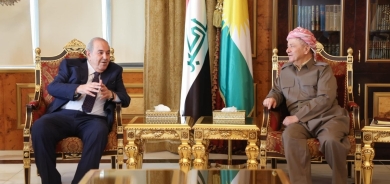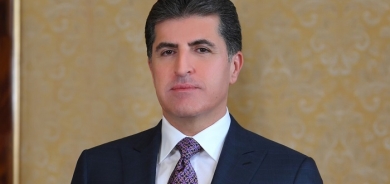Christopher Morris: Democracy needs constitutional structures that protect minorities – everyone in fact – against exploitation by majorities.
October 17, 2015
Exclusive Interviews

what will happen if this moral underpinning were lost?
The end of political action should be the public good. This is a popular and influential view,
one that I accept. It does not mean that all political actors must be exclusively motivated by
the public good; some may be moved by personal ambition as well as by the public good.
Political action must also be constrained by justice. Political actors often have to make difficult
choices, but they should in general respect the basic constraints of justice – protection
of life and property, respect for fair procedures (for instance, legal safeguards on conviction
of the innocent).
2. When political struggle shifts from public good to struggle among political parties, to what extent the society
will suffer from political dogma, and to what extent the society will become the enclosure for parties' ideologies?
This is a very difficult question to answer, and much depends on the context and the situation
locally. Competition between different parties can in some situations yield good or decent
results, but not in others. In all societies there normally will be disagreement as to what
the public good is and how it might best be achieved. Competing political parties might represent
this disagreement and provide a way to address it and to reach common ground. Of
course often competition between parties can make things worse. For instance, a weak political
party might try to create a crisis in order to increase its power and influence and to diminish
or destroy its rivals.
3. In democratic societies political parties are necessary requirement for representing people's aspiration, but in
developing countries, the groups and personalities create parties for guiding and directing people, do you agree
that these parties would lead there societies to a dangerous direction?
Again much depends on the context. Democracy is a type of system of government that relies
a lot on formal elections, legislatures that make decisions by voting, popular recall of officials,
and other mechanisms. In non-democratic societies there usually are other mechanisms
for reaching consensus, at least among powerful groups. Democratic countries all
originally evolved from non-democratic societies, and they typically exploited the decisionmaking
and legal traditions that existed in their societies. So it’s possible that better institutions
can emerge from a political struggle. One often has to work with the consensusbuilding
traditions that exist.
4. The political parties in developing countries are trying politicize there countries, this means that they transform
the civil aspirations to political ones, and this constitute a major problem, so to what extent politicization
of the society generates dangerous consequences?
Your question makes a distinction between civil and political aspirations. In the west there
are some modern traditions that stress the benefits of “civil society” against the dominance
of state institutions. Civil society in this sense is made up of all the largely non-political (or
non-state) institutions of a society – for example, family, commercial societies, workers cooperatives,
religious organizations (https://en.wikipedia.org/wiki/Civil_society ). Tyrants
usually try to destroy the institutions and organizations of civil society (ex., the Soviet Union,
Saddam Hussein’s Iraq, ISIS). I think it very important to have and to maintain a healthy
“civil society” to prevent tyranny. So if I understand the question correctly, it will be important
to preserve and protect many “civic aspirations”. In most countries – like Iraq, Canada,
Belgium, Spain, the UK – where there are different national/religious/linguistic groups,
it is especially important to carve out areas of social life and to allow them to function independently
of the state.
5. In developing countries the political parties are not genuinely committed to democratic values, but they are
exploiting democratic mechanisms, just like Islamic political parties, so what are the negative outcomes of
shifting democratic processes to a stepping stone by political parties?
Before assuming power, Recep Erdoğan apparently said “Democracy is like a train: when
you reach your destination, you get off”. This view of democracy, as an instrument for
achieving one’s ends, to be discarded afterwards, is clearly dangerous. Another view, quite
common, is that democracy consists essentially of majority rule. This view is also dangerous:
a party or group might achieve political dominance and exploit minorities, dividing the spoils
of electoral victory amongst its followers. Democracy needs constitutional structures that
protect minorities – everyone in fact – against exploitation by majorities. Entrenched “articles
of rights” are meant to protect freedom of speech and of association, civil and juridical
rights, freedom of religion, property. Today constrained democracy is often called “constitutional
democracy”, though an older term is “republican government”.
6. When political parties are overwhelmingly concerned about their narrow political interests, the society will
suffer from a sharp polarization; and that this polarization will lead to division, and disunity, how can we
adequately address this issue?
Lots of factors can contribute to polarization. US society, for example, is much more polarized
than it was thirty or forty years ago. There are different causes of polarization, and ideally
institutions should protect against this. I don’t have much expertise here. One important
concern here for many non-democratic countries (and some democratic ones) is corruption,
which is one manifestation of the disregard for the public good. A particular form of corruption
that is very destructive is the use of political offices as means for enriching oneself and
one’s allies. The practice of requiring payment for service is familiar in many parts of the
world (bribery) and can be very destructive. If governmental offices are viewed as instruments
of private enrichment, then government cannot serve the ends for which we need it.
(A general article: https://en.wikipedia.org/wiki/Political_corruption. Sarah Chayes has
written an excellent book on the subject, much of it coming out of her work in Afghanistan.
Some articles of hers: http://carnegieendowment.org/experts/?fa=712; see esp. this inter3
view: http://carnegieendowment.org/2015/07/15/global-kleptocracy/idi6.) The republican
tradition, mentioned above (“republican government”) stresses the destructive powers of
corruption and the importance of the “rule of law”. The last is very important, but a very big
topic (see http://worldjusticeproject.org/what-rule-law).
7. The major process for organizing the society is policy-making and decision-making, and these two processes
must have been the product of public policy, but if the public policy replaced by narrow private policy, what
obstructions will stand in the way of decision-making process?
A good part of the answer to this question lie in the answers to the last questions. My replies
have been very abstract, in part because philosophers think abstractly, in part because more
concrete answers can only be given by people who know the political and cultural circumstances
of their society. I’ve never been to Iraq or to any of the Kurdish territories of the
Middle East. So I am in a poor position to offer advice. The concerns that lie behind your
questions are very important, and the problems quite difficult to resolve.















